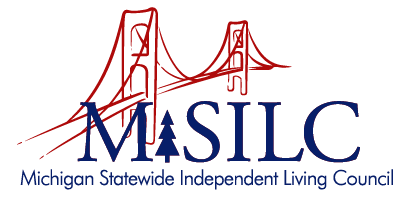In its broadest dictionary definition, “connection” means “a relationship in which a person, thing, or idea is linked or associated with something else.” In actual life, connection plays out in many ways. It can mean creating friendships or even a romantic relationship with other people. It can involve establishing a sense of attachment or belonging in your community. Or, it can mean bringing other people together for a shared cause. As people, and especially people with disabilities who may feel uniquely isolated this time of year, connection can be a virtual lifeline. It can assure us that we are not alone in this world, that we have people and places to turn to when we are in need, and that we are valuable and valued by those around us. Social connectedness in particular is even linked with better physical and mental health, and even a longer lifespan.
Connection is also critical to our work as disability advocates. Studies have shown that in work and daily life, people are more motivated to achieve when they feel connected to the people around them, especially those who are benefiting from their actions. As one study noted, “connection makes a huge difference in provoking action.” If we want to be effective in creating change throughout our communities and greater society, we need to be engaged with the people around us who we are asking to be allies and supporters of our movement.
So how do you build connection, especially during the colder (and lonelier) winter months? Thankfully, many opportunities exist to help you achieve your goals of connecting with others. Below are a few ideas to get you on the road to connection today and in the new year:
Meet a Need
Virtual and in-person volunteer opportunities abound during the holiday months, and giving can be a great way to get in touch with other people who share your interests and values. Visit volunteermatch.org or contact schools, churches, or nonprofits in your area to find out how you can help!
Leverage Technology
Our digital world means connection of all kinds can happen online, whether you’re participating in a game night for fun, chatting on a message board about a hobby or interest, or training to be a more effective disability advocate. The Centers for Independent Living in particular offer many online social and educational events to bring people together, share knowledge, and improve well being. Find your local CIL here and get in touch to see what’s on the calendar in the coming months!
Be a Voice
One way to effect change in your community and connect with others is to take on a formal or informal leadership role with your government or other organizations that are making things happen in your area. Whether you choose to participate on a committee, seek a leadership position at an influential church or community center, or run for a municipal office, you can help your neighborhood and local leadership understand the benefits of promoting access and inclusion and empowering every resident. Contact your city or township leaders to learn more about how you can make an impact and improve the place you call home.
Keep Things Interesting
Learning something new and staying as active as possible are good strategies for improving your physical and mental health. Oakland County Adaptive Recreation, the University of Michigan’s Adaptive Sports Program, Kentwood Parks and Recreation, and many other organizations offer year-round programming for people with disabilities. Contact your local parks and recreation department, county health department, or your nearest CIL to learn more!
With the right resources, winter can be as full of connection and engagement as the warmer months. Visit MiSILC.org to learn more about our work advocating for people with disabilities across Michigan.






